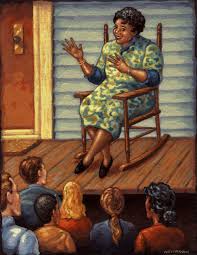
Whether you are telling a story orally or in writing, you really should consider your audience.
With the written word, “audience” is usually called “reader.” And that frequently leads to an oversight in the world of writing, I think. There is a difference in the two words, after all. A reader is simply one who reads–absorbs the writing. But the word “audience ” has much more emotional baggage that that. Audiences are active in their absorption of art. We expect them to approve or disapprove. We expect applause or silence. Approval or disapproval. They, in a very real sense, are part of the artistic performance. So of course, to garner their delight, the artist must consider them in the production of her work.
How many writers consciously write with their reader–their audience–in mind?
Well, in writing the story of another, it is centrally important to consider just whom you are writing for.
In my writing for hospice patients, I actively consider three audiences. First, the work I produce is written for the patient–my writing partner–himself. That is to say, the written work I produce, I want to be enjoyable to the person whose stories I’m striving to capture. That is a notion that is specific to the kind of wiring I do, and it may not be at all of concern to you, but for me it is central. At the stage of life when I encounter my writing partner, the last thing I would ever want to do to them is to upset or disquiet them in any way. I know that is a unique constraint, but in my particular kind of writing work it is paramount.
Next, I actively consider who my writing partner would like to tell their story to–whom they want their audience to be. It may seem obvious, but the style in which I write must be adjusted depending on who my partner’s audience is to be. Age is but one very obvious consideration. Beyond that, literally any demographic (social, economic, political, educational, etc.), distinction of the people my writing partner wants to talk to is important. It affects all aspects of the writing as you will readily agree if you appreciate the differences in, say, juvenile books and those for adults, or, say again, books for the erudite literati versus the rest of us.
Finally, I try never to loose sight of the fact that written words, any written words, have a way of growing legs–of meandering where they want to. they don’t always stay put where you assume they will. I once got a phone call from a fellow in a city 500 miles from where my partner and I had been three months before. He wanted to quote something I’d written about her in something he was writing. Was he a relative? No. Was he a friend? Never met the woman. Was he a friend of a relative? Not that he knew.
See what I mean? Had I not considered this sort of random walk that writing takes on its own, the many place names and relationships of the characters in the woman’s story would be a mystery to the fellow. So the world at large is yet another audience for your.
No matter whom you are writing for, they are your audience. Make the decision to talk to them as an audience and make it explicitly. As ever it was so, the audience is part of the story.
